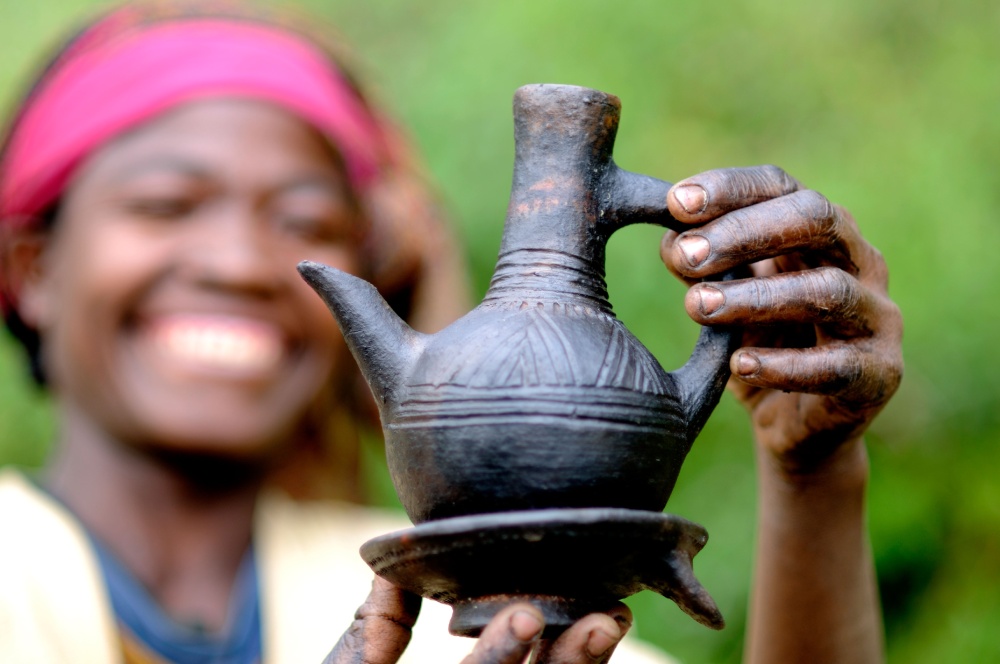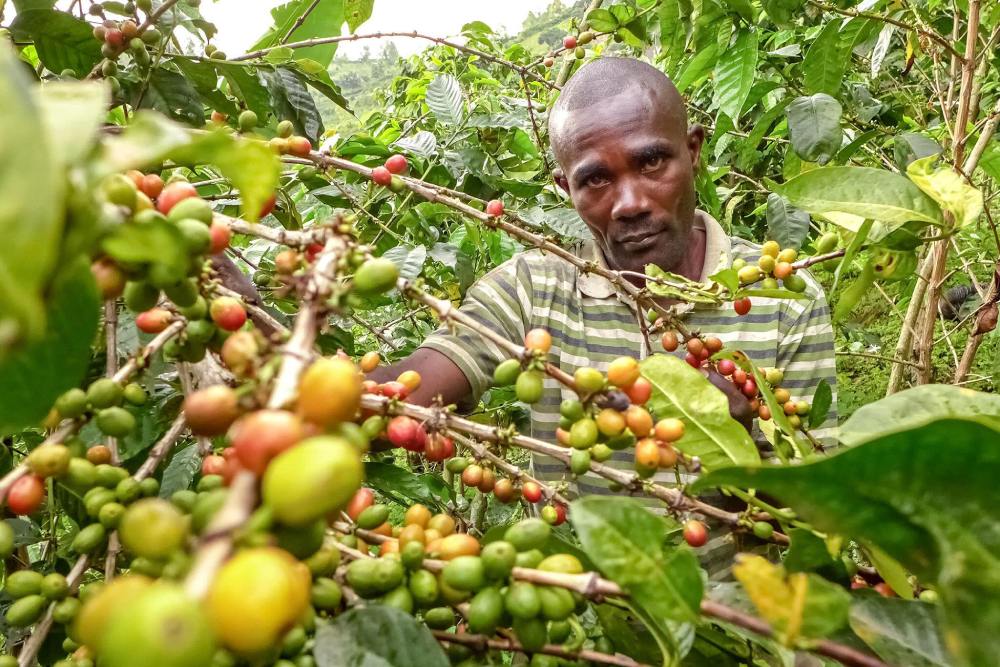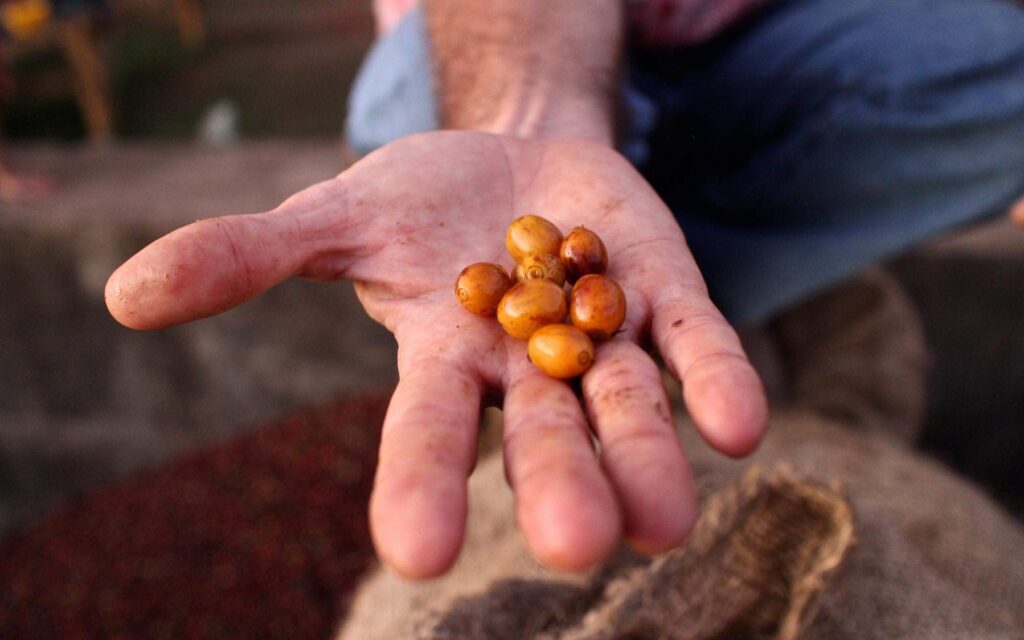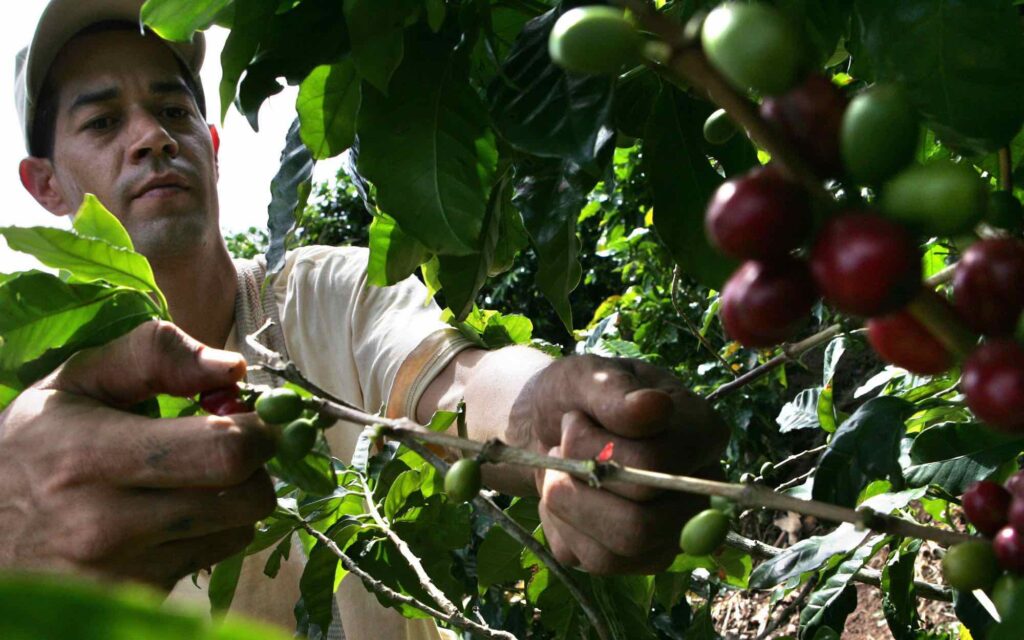Coffee may have prehistoric Ethiopian roots – but will we ever really know where it came from?

If you ask industry professionals and enthusiasts where coffee originates from, you could receive a variety of responses. While many people point to Ethiopia and Uganda as the “birthplace” of arabica and robusta, respectively, others believe that Yemen, Somalia, the Democratic Republic of Congo, or South Sudan are where coffee has its genetic roots.
According to a study recently published in Nature Genetics, researchers at the University of Buffalo in New York have traced arabica’s origins back to Ethiopia – further supporting claims that the East African country was the first in the world to grow coffee. Even more intriguing is that the study says arabica is estimated to be between 610,000 and one million years old. If this is accurate, coffee would out date our own species (Homo sapiens).
But with numerous scientific papers citing various African or Middle Eastern countries as the world’s first coffee producers, we may never truly know where it originates from. Encouraging and supporting this kind of research, however, is key to acknowledging and celebrating coffee’s genetic roots – and the industry needs to take note.
To learn more, I spoke to Bartholomew Jones, founder of Cxffeeblack, and Jennifer “Vern” Long, CEO of World Coffee Research.
You may also like our article on addressing colonial inequalities in the coffee sector.
New study reaffirms coffee’s roots in Ethiopia
The world over, people love coffee. We have been drinking it for centuries – and it therefore has huge cultural significance in many parts of the world, especially those that grow coffee.
So naturally, people are also fascinated by coffee and its history. Many of us are familiar with the story (or some would say myth) of Kaldi, who was supposedly an Ethiopian goat herder that first “discovered” coffee around 850 BC. After he saw his goats eat cherries straight off the branches of the coffee plant, it’s said that Kaldi also tried them – and was amazed by how energetic he felt after eating them.
The story then goes that Kaldi shared his discovery with a local monk, who at first deemed the coffee cherries to be “demonic” following Kaldi’s explanation. But after brewing the cherries and realising the benefits of drinking coffee, the monk also spread the word. From here, the rest is history.
Whether or not you believe the story of Kaldi, there is plenty of scientific research which verifies Ethiopia as the “birthplace” of coffee. Most recently, a genetic study conducted by the University of Buffalo in New York found that arabica can be traced back between 610,000 and one million years ago to the forests of Ethiopia – potentially making coffee older than humans.
The researchers sequenced the genomes of 39 arabica varieties, including a specimen from as far back as the 18th century, which they claim is the highest quality genome to date of the Coffea arabica species.
Moreover, the team traced arabica’s origins to a natural breeding between Coffea canephora and Coffea eugenioides – the latter of which has made waves in the coffee competition scene in recent years.
Disputing coffee’s “true” genetic origins
Although many people point to Ethiopia as the world’s first coffee grower, several other countries also hold claim to being the “true” first coffee origin.
It’s not uncommon for people to believe Yemen first discovered coffee, while others claim that it first came from Somalia. Similarly, academic papers have also substantiated assertions that South Sudan is a “centre of origin” for arabica.
Considering that Somalia and South Sudan both border Ethiopia – while Yemen is located across the Red Sea – it’s understandable why there is debate about coffee’s genetic roots.
Ultimately, this could mean that we may never know which of these countries coffee “really” comes from, but tracing its origins back to this region of the world is still important.
Bartholomew Jones is the co-founder of Cxffeeblack – a roaster and social enterprise which focuses on reclaiming coffee’s Black roots, and in turn, acknowledging and celebrating Black culture in specialty coffee.
“When we say coffee, what do we even mean? Because there are over 130 different species of coffee, and we generally only refer to arabica,” he says. “I think the bulk of genetic research shows that there’s the widest and most diverse arabica genetic variety in southern Ethiopia. But there are also hundreds of species of coffee that exist all over the African continent.
“Africa is the birthplace of humans,” he adds. “So with coffee being one of the oldest foods or beverages or medicines that humanity has, of course it makes sense that coffee originates from Africa as well. For me, it’s important to honour that in a lot of ways, because when we don’t honour and acknowledge the genetic roots of coffee, we can easily lose access to it.”
Why it’s so important to acknowledge coffee’s genetic origins
Even though different coffees – whether it’s different origins, varieties, or processing methods – can vary so much in taste, coffee is not a genetically diverse species. In fact, a 2020 study published in Nature stated the world’s supply of arabica is derived from a single coffee plant.
This can mean many things, but perhaps the most obvious is that it makes coffee an incredibly vulnerable cash crop. And as climate change continues to impact the industry – especially at farm level – more and more producers have to find new ways to adapt, which can include moving away from coffee farming altogether.
Of course, this means it’s all the more important to invest in the sustainable future of coffee production.
Jennifer “Vern” Long is the CEO of World Coffee Research – a non-profit organisation which carries out and supports global coffee breeding programmes.
“Tracing the origins of coffee lays the foundation for exploring its story of domestication, as well as examining the compelling social, cultural, and historical dimensions of coffee,” she says. “Nature gave us Coffea species (like arabica and robusta), while humans have given us heirloom and modern varieties – ensuring that farmers have the relevant varieties they need for the future.”
Considering that an estimated 60% of wild coffee species are at risk of extinction as a result of the climate crisis, investing in and supporting research into coffee’s genetic roots becomes even more critical.
Acknowledging coffee’s anthropological roots
But these issues also extend further beyond science and genetics. Bartholomew offers a much more holistic perspective.
“When we look at the arguments about where coffee comes from, oftentimes we pay so much attention to the scientific arguments that we miss the anthropological arguments – like which country has the oldest coffee-drinking culture?,” he says. “Which cultures have been drinking coffee pre-colonialism and how far back can we trace that?
“We talked about this in our most recent Barista Exchange Program – the Oromo people in Ethiopia have developed a whole cultural and societal system where coffee is integral to spiritual, philosophical, familial, and medicinal practices,” he adds. “It’s my belief that there is a whole world of innovation – both culturally and culinarily – that the coffee industry misses out on because having a neocolonialist perspective doesn’t allow the roots of African and indigenous cultures to have space and fully develop to their fullest potential.”
On top of recognising the indigenous communities and cultures which have contributed to our understanding of coffee, it’s important that producers are at the forefront of this acknowledgement.
“Even from a genetic standpoint, there’s so much fear right now about how we sustain coffee’s future, when in reality, the people who sustained it naturally for centuries have never been fairly compensated – whether we’re talking about Ethiopia, Yemen, the DRC, or South Sudan,” Bartholomew says. “Protecting African farmers whose indigenous practices have preserved the uniqueness of coffee varieties and species for years and their access to markets is extremely important.”
Improving market access
Bartholomew also explains how many producers – particularly smallholders – often receive little benefit from growing and selling more genetically unique coffees.
“There are more and more rare and ‘new’ varieties at competitions, but many farmers aren’t able to reap the rewards of selling these coffees,” he says. “To my knowledge, the market for eugenioides does very little to benefit indigenous communities in Africa that have preserved this species in the wild for centuries.
“African farmers and Afro-African communities need to have the opportunity to market their own coffees,” he adds. “For example, the Ethiopian Coffee and Tea Authority filed trademark patents for Yirgacheffe, Sidamo, and Harar-grown coffees. This could be used to generate more revenue for communities who want to sell rare varieties – especially when specialty coffee is hungry for new flavour profiles, ‘novel’ coffees, and alternatives to arabica.”
Although we may never truly know the answer, learning more about where coffee comes from is an important step towards understanding its genetic origins and diversity – and paying respect to the countries which grow it.
“I think that for the sake of indigenous African people who grow coffee, we have to acknowledge and honour coffee’s African roots and our own roots in Africa – as well as the interconnectivity of the coffee industry – to maintain a balanced relationship for the future of the Coffea species,” Bartholomew concludes.
Enjoyed this? Then read our article on Ethiopian heirloom coffee varieties.
Perfect Daily Grind
Want to read more articles like this? Sign up for our newsletter!
The post Coffee may have prehistoric Ethiopian roots – but will we ever really know where it came from? appeared first on Perfect Daily Grind.





Responses